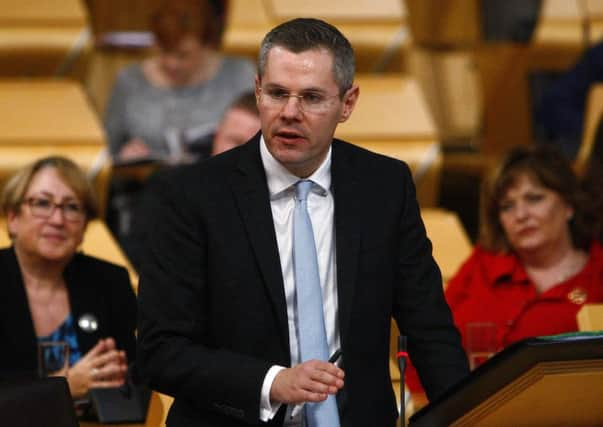SNP urged to set out five-year plan on tax


It comes as Labour today steps up calls for the Scottish Parliament to increase the top rate of tax for high earners to 50 pence as new figures indicate that wealth levels among Scotland’s rich have soared in recent years.
But in a in a submission to MSPs at Holyrood, the Institute for Chartered Accountants in Scotland (ICAS) says that the parliament’s new tax powers may lead to greater attempts to avoid paying tax among better-off Scots.
Advertisement
Hide AdAdvertisement
Hide AdThe Scottish Government has already used its new income tax powers to leave middle-earners in Scotland paying more than their counterparts south of the Border.
The threshold for the higher 40p rate has been frozen at £43,000, while rising £45,000 in England, Wales and Northern Ireland.
ICAS is now calling on ministers to set out a five-year “road map” on tax policy to provide greater certainty as Scotland’s economy teeters on the brink of recession.
“This should set out policy objectives and provide clarity of purpose,” ICAS says in a submission to MSPs.
“A roadmap may also discourage politicians from indulging in eye-catching changes that may offer a perceived short-term political advantage but that may not meet the test of benefit over the longer term.”
Both Labour and the Liberal Democrats want to raise the basic rate of tax by a penny in Scotland to fight austerity.
Ministerial statements on how often tax policy changes should be proposed, or how often rates and bands should change, should also be considered.
“Taxpayers and business want certainty and stability,” the ICAS submission adds.
Advertisement
Hide AdAdvertisement
Hide AdHolyrood has control over income tax rates and bands, but not over the personal allowance, capital gains tax and corporation tax and ICAS say this could lead to “increased attempts at planning to avoid increased tax costs.”
This could be done by converting sources liable to income tax into corporation or capital gains tax which goes to Westminster. It comes as new analysis of HMRC data by Labour reveals that the total income of Scotland’s richest people has increased by 68 per cent since 2011.
Labour leader Kezia Dugdale insisted that austerity politics has been bad for Scotland’s economy and stepped up calls to increase the rate for high earners making more than £150,000 from 45 pence to 50 pence.
She said: “We can make different choices and build an economy that works for working-class people, protects public services, and asks the richest to pay their fair share so we all benefit.”